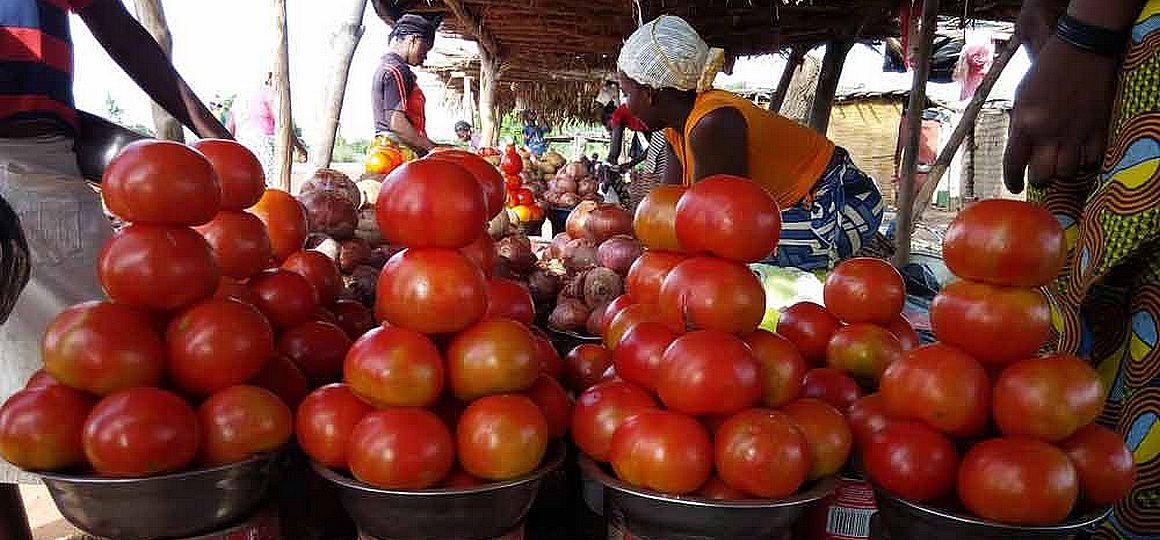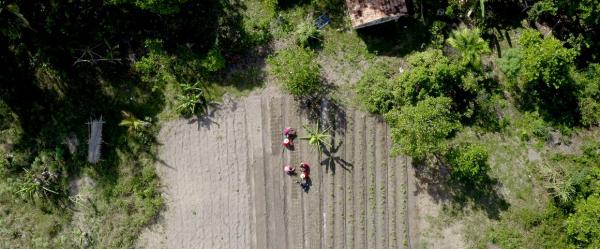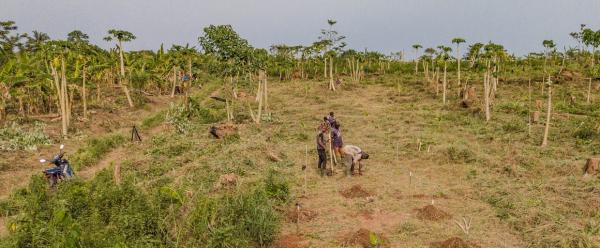Call to action 10 April 2024
- Home
- CIRAD news
- News
- Reinventing food systems, to make them sustainable, resilient and inclusive
Reinventing food systems, to make them sustainable, resilient and inclusive

There are two billion producers and seven billion consumers worldwide. Food systems concern everyone and encompass a very broad range of human activities linked in one way or another to food. They have substantial effects – both positive and negative – on various scales.
Food systems must be transformed
There are several problems with current food systems:
- They do not ensure food and nutrition security, and access to food still varies greatly, despite the fact that globally, there is enough food available.
- They have a substantial environmental and climate footprint. Agricultural intensification based on a model that assumes resources are infinite has now reached a dead-end.
- The way in which food systems function generally results in substantial inequality. They favour some players over others, resulting in a concentration of wealth among the few at the expense of billions of others.
CIRAD is calling for systemic, far-reaching changes in food systems, as the very foundations of how we assess their performance are now shifting: rather than thinking solely in terms of productivity and quantity, we now expect systems to be multifunctional and take on a range of different challenges.
The challenges are greater in the global South, and every opportunity must be taken to support initiatives
Sustainable development challenges apply to every country in the world. However, the low-income countries in which CIRAD works face even greater obstacles in their efforts, notably population growth and the resulting demand for jobs. They are also more vulnerable to the effects of climate change. Lastly, their lack of resources limits their capacity to react and adapt. However, food systems in the global South vary depending on the context, notably between rural and urban areas. Stakeholders are constantly innovating and highly dynamic.
Research has a major role to play
Research has a pivotal role to play, not just in proposing technical solutions but also in fuelling various debates. It must set out the compromises to be struck between conflicting objectives, build the skills of the various players and their capacity for innovation, and present a range of possible scenarios and the potential and risks associated with them.
The five priorities for CIRAD
- Developing and rolling out innovative agricultural production and food processing technology and practices.
- Improving food nutritional quality through research, to promote food diversity and access for all.
- Developing novel methodological approaches. These approaches will necessarily be systemic, in order to analyse the complexity of food systems, understand how they operate, and assess the sustainability of their various components.
- Characterizing and promoting food systems that help to ensure a satisfactory social, economic and health situation.
- Fostering multi-stakeholder governance on a territory level, to facilitate the structural change required.
In its work, CIRAD strives to build upon the knowledge and skills of stakeholders and on local innovation systems, and to work with them to produce diagnoses, assessment methods, technical and organizational solutions, and policies. To this end, it will rely on wide-reaching partnerships, capacity strengthening, and foresight exercises and tools.
CIRAD has set up a team to prepare for and monitor the United Nations Food Systems Summit. It comprises the following experts: Arlène Alpha, François Bousquet, Patrick Caron, Marie de Lattre-Gasquet, Sandrine Dury, Etienne Hainzelin, Emilie Klander, Eric Malézieux, Paule Moustier, Dominique Pallet, and Nadine Zakhia-Rozis, who participated in drafting this position paper.


























